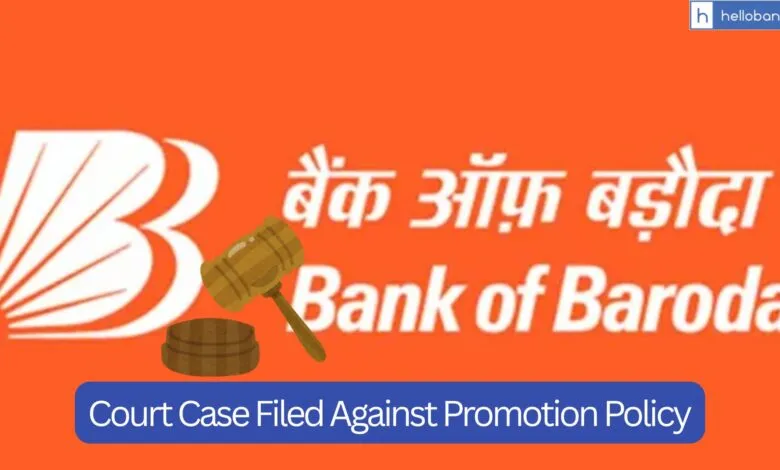AIBOBOU files Court Case against Gems System and Promotion Policy of Bank of Baroda

All India Bank of Baroda Officers’ Union (AIBOBOU) has filed a Writ Petition before the Hon’ble Rajasthan High Court, Jaipur Bench, challenging the Gems System and Promotion Policy of Bank of Baroda.
Why case filed in Court?
AIBOBOU says it has filed the case in court because the Bank of Baroda has secretly replaced the statutory APAR with an illegal, opaque algorithmic system – GEMS. Right now, Bank of Baroda is using the APAR system, which is mandated by DFS. But the Bank has decided to shift from APAR to GEMS.
What’s Difference between APAR and GEMS system?
The DFS-mandated APAR system is:
- Statutory in nature
- Mandatory for all PSBs
- Requires self-appraisal → reporting → reviewing → accepting authority → disclosure → appeal
- Transparent, auditable, human-review based
- Cannot be replaced by the Bank without:
- Board approval u/s 19(1)(d) of the 1970 Act
- DFS approval
- Consultation with unions
But Baroda GEMS is:
- Not statutory
- Not approved by Board
- Not approved by DFS
- Not in any Regulation
- Not consultative
- Fully opaque
AIBOBOU says that GEMS system is not transparent as
- Secret algorithms determine score of officers.
- KRAs are not disclosed in advance.
- Weightages are hidden.
- No officer can see:
- How scores are computed
- What data is taken
- Why data is missing
- How “extrapolation” is done
- How targets are imposed
- How cohorts are formed
- COHORTS (hidden groups) decide fate of Officers:
- Unknown comparators
- Arbitrary cluster formations
- Relative scoring instead of merit
- Zero transparency
- Violating Articles 14, 16, 21
- Extrapolation fabricates marks of Officers
- No appeal, no correction window, no review mechanism
- Query box is not an appeal
- No human hearing
- No opportunity to correct system errors
Thus, AIBOBOU is clearly against the new GEMS system introduced by Bank of Baroda.
What’s the issue in New Promotion Policy?
AIBOBOU has stated that the new promotion policy lacks transparency, as there are several adverse features in the policy, such as:
- Penalisation for declining promotion
- Different rules for specialists vs generalists
- No transparency in cut-offs or written exam scores
- No publication of results—only successful officers see their results
This is against Supreme Court law, which strictly prohibits secretive selection processes.
AIBOBOU says that if GEMS continues unchecked:
- Promotions will no longer depend on merit
- Scores will depend on hidden cohorts
- Targets will be unrealistic
- Discretion will increase
- Algorithm will dominate
- No human will be accountable
- Transparency will end
More details will be updated as the case progresses.
